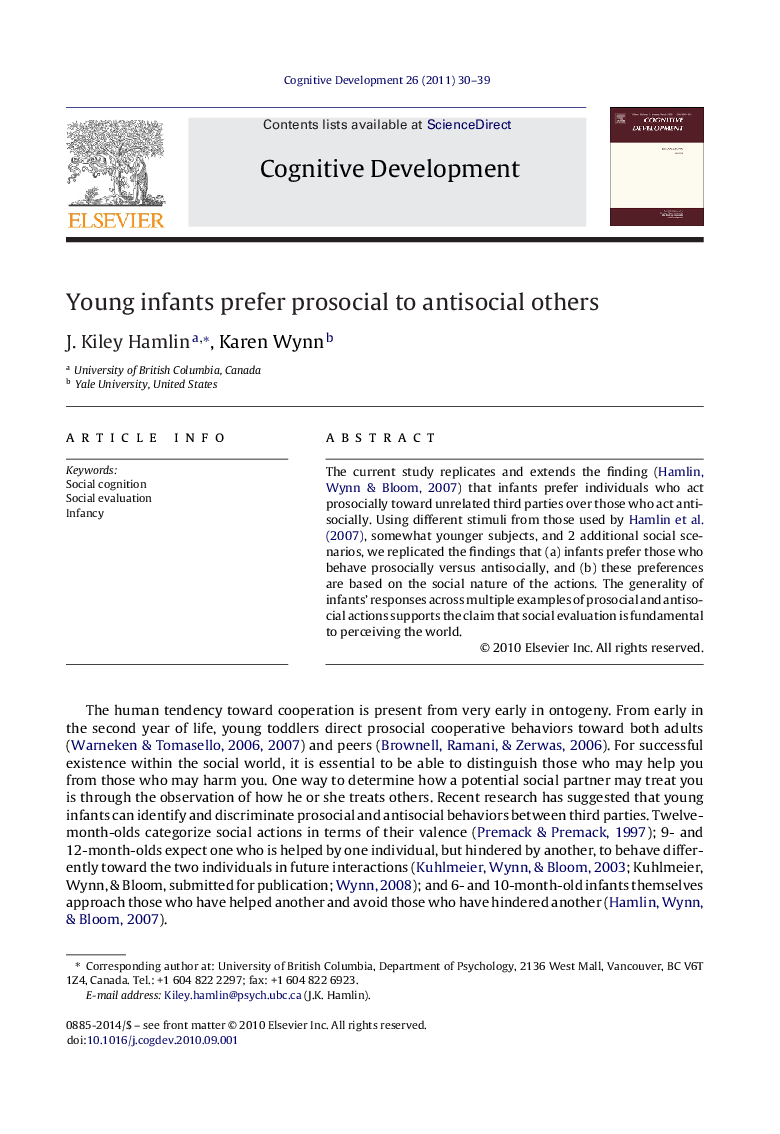| Article ID | Journal | Published Year | Pages | File Type |
|---|---|---|---|---|
| 916638 | Cognitive Development | 2011 | 10 Pages |
Abstract
The current study replicates and extends the finding (Hamlin, Wynn & Bloom, 2007) that infants prefer individuals who act prosocially toward unrelated third parties over those who act antisocially. Using different stimuli from those used by Hamlin et al. (2007), somewhat younger subjects, and 2 additional social scenarios, we replicated the findings that (a) infants prefer those who behave prosocially versus antisocially, and (b) these preferences are based on the social nature of the actions. The generality of infants’ responses across multiple examples of prosocial and antisocial actions supports the claim that social evaluation is fundamental to perceiving the world.
Related Topics
Social Sciences and Humanities
Psychology
Developmental and Educational Psychology
Authors
J. Kiley Hamlin, Karen Wynn,
